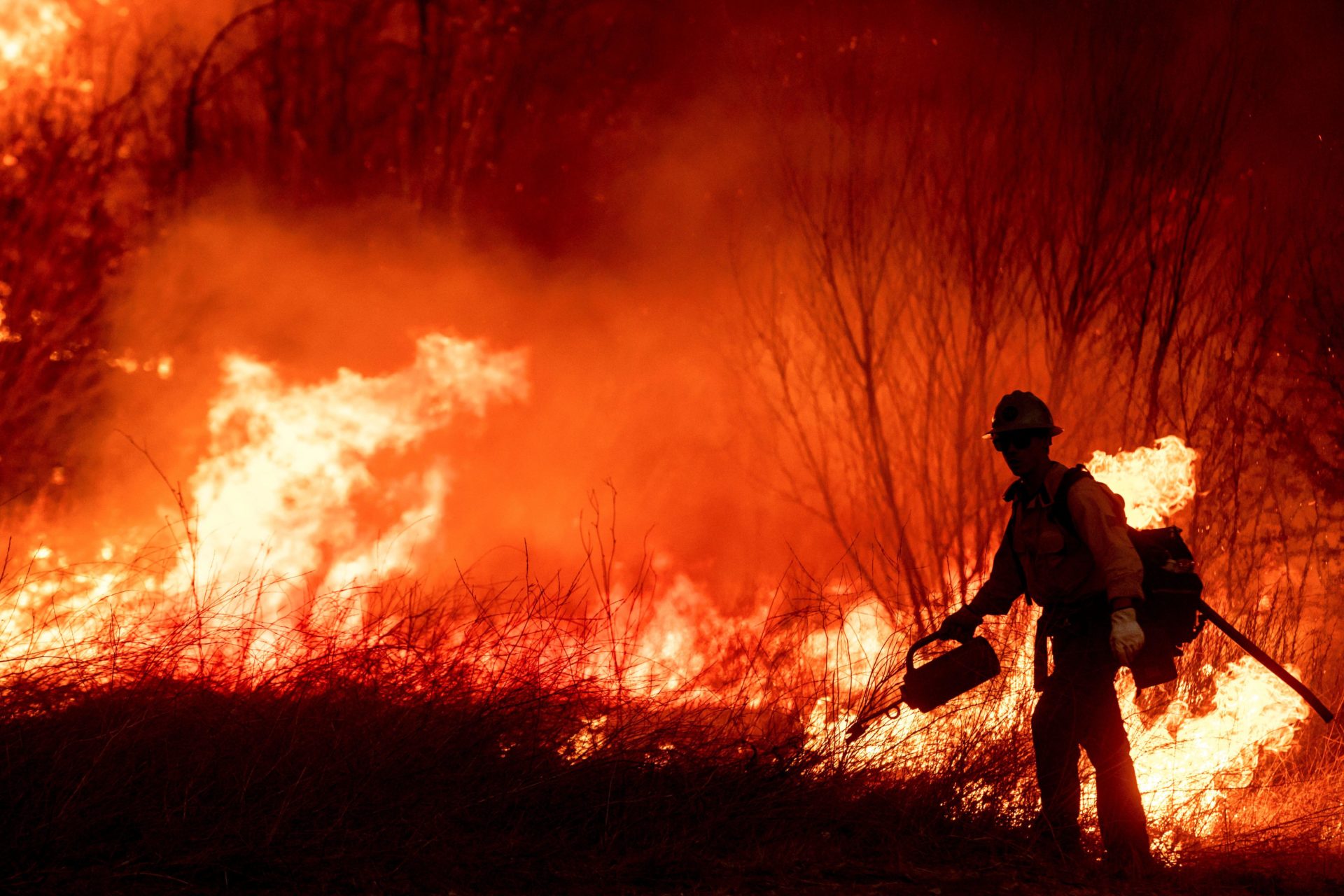2024 was the warmest year on record globally, according to the EU's climate change service.
Last year saw the average global temperature exceed 1.5C above pre-industrial levels for the first time, Copernicus has reported.
On Newstalk Breakfast, UCD assistant professor and environmental scientist Dr Cara Augustenborg said the increase is ringing "alarm bells for scientists".
"Just like the human body if our temperature goes 1C above average, we’re a fever and if we go above 2C or 3C we’re seriously unwell," she said.
"We’re heading into that stage of the planet now of being very worried if we have a decade of averages of 1.5C - we’re definitely beginning a worrying trend."
 Firefighters work to extinguish a blaze caused by wildfires in California Jan. 9, 2025. (AP Photo/Ethan Swope)
Firefighters work to extinguish a blaze caused by wildfires in California Jan. 9, 2025. (AP Photo/Ethan Swope)Dr Augustenborg said an increase to the average global temperature will lead to "irreversible warming".
"We will see an irreversible melting of the Greenland ice sheet and the Antarctic ice sheet," she said.
"So that means very significant sea-level rise going all the way into 2100.
"It means that low-lying islands in the south pacific, the Maldives they would be essentially gone as a result of those temperatures."
Climate events
Dr Augustenborg said we are currently seeing the impact of the rising temperature.
"You don’t have to look very far to see what a 1.5C warmer world is," she said.
"It’s Valencia last summer, it’s California right now, it’s Middleton last year.
"It means more energy in the system from the burning of fossil fuels and that means more extreme energy on both sides - both in terms of extreme heat but also stronger storms and more precipitation too."
Action
Dr Augustenborg said a much stronger response is needed to address global warming.
"We have lots of ambitious targets especially in the EU and in Ireland now - but we’re not implementing them fast enough to really deal with the extreme rate of change we’re seeing with the planet," she said.
Dr Augustenborg said action is needed in order to "get ahead of this problem."
Feature image: Icebergs off the coast of Iceland, Alamy









